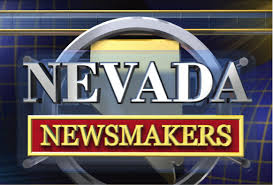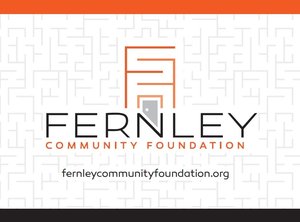Reno senator ‘shocked’ Democrats go easy on state workers after getting $250,000 from their union
By Ray Hagar, Nevada Newsmakers
State Sen. Heidi Gansert, R-Reno, said on Nevada Newsmakers that she was “shocked” the labor union representing Nevada’s state employees gave $250,000 to state Democrats, candidates and PACs in the three months leading up to the recent 12-day special session of the Nevada Legislature.
Gansert hinted of a direct link from the union contributions to favorable treatment — she estimated worth $40 million — given to state workers represented by American Federation of State, County and Municipal Employees (AFSCME) in the budget-cutting process.
Gov. Steve Sisolak had called the session to cut $1.2 billion from the state budget in response to economic havoc caused by COVID-19.
“I guess I was just shocked,” Gansert told host Sam Shad. “I was stunned at the level of donations to certain candidates and their PACs. It was substantial. It was not a small about of money — $250,000 — to the PACs and the different funds to support the majority party.
“They ended up getting $40 million in add-backs, the public employees did,” Gansert said. “So it is what it is.”
State workers were set to shoulder 12 furlough days in the fiscal year, a freeze in merit pay and the loss of eight jobs through layoffs in Gov. Steve Sisolak’s proposed budget cuts.

After the governor’s budget was tweaked by Democratic majorities in both houses, merit pay freezes and layoffs were eliminated and furlough days were cut to six.
The estimated $40 million in state worker “add-backs” by Democrats should have gone to k-12 education or health care of Nevada’s citizens in poverty, Gansert said.
“We were shocked at the numbers in k-12 and how the majority party was trying to take more money out of k-12 than even the governor proposed,” she said. “I could not figure it out and we really had to go over and over it again, the numbers, with them. They were spending money on restoring public employee pay and merit pay, which didn’t make any sense to me.”
AFCSME’s contributions to Democrats were detailed in campaign finance disclosure reports filed with the Secretary of State and were first reported by Riley Snyder of the Nevada Independent on Twitter.
Included in the report was a $50,000 contribution to the Assembly Democratic Caucus on June 9 and $50,000 to the Nevada Senate Democrats on June 10.
The AFCSME also contributed $5,000 to Senate Majority Leader Nicole Cannizzaro on June 11 and $2,500 to Assembly Speaker Jason Frierson on June 19.
Gansert invoked the plight of private-sector workers in the debate.
“When you look at this state, and having the private sector shut down for months, especially our largest industry, gaming, and all of these small businesses that are struggling and when unemployment was hitting close to 30 percent, I thought it very appropriate that public employees take a cut of about 4.6 percent. It pales in comparison to how the private sector is suffering.”
Helter-skelter session
The length of the session, 12 days, could have been cut if Democrats were more organized at the start, Gansert said.
“This special session was frustrating in that the budget and what we needed to do was not well prepared when we walked in,” she said.
Gansert said the Senate Republicans wanted to prioritize k-12 education and Department of Health and Human Services. Some of the proposed cuts in the governor’s proposed budget alarmed her.
“When you have line items that say we are not going to provide for prosthetic devices for people on Medicaid, or we are not going to provide dental care to children, or we are not going to provide mental-health services to children, you have a problem,”she said. “That why it is so important that we evaluated the budget and we were able to add back some money to those critical programs.”
One of the cuts in k-12 education was the ‘Read by 3’ program, which was a top priority of former Gov. Sandoval during the 2015 Legislature. It was allotted $27 million in 2015. ‘Read by 3’ was a priority for Sandoval. He stressed the need for students to read by the completion of the third-grade so they had a better chance of not falling behind in later grades. Gansert was sorry to see it go.
“Every child should be expected to read by third grade and we should do everything we can to make sure they are able to ready by third grade,” she said. “And when you cut $30 million like that, the consequences are significant — significant.”
She said her caucus had good communication with Democratic leadership at the beginning of the session, “but it kinda all fell apart at the end.”
No Republican in the Legislature voted for the bill that would have cut 60 percent of the mining industry tax deductions. The measure sailed through the Assembly but was stopped in the Senate because of the two-third rule to raise taxes. All GOP senators voted against it and it lost by one vote.
Gansert said a recession is not a good time to raise taxes. Nevada, however, remains the most lucrative gold-mining state in the nation, by a wide margin, according to Statista.
“When we’re facing 30 percent unemployment and businesses are closing down, why would you look for another tax?” she asked.
Nevada’s unemployment rate hit 30 percent in April, dropped to 25 percent in May and 15 percent in June, according to the U.S. Bureau of Labor Statistics.
The money the mining tax would raise could already be found in cuts from other areas, Gansert said.
“The amount they were looking for was $50 million, well, we had $50 million going to k-12 for hazard pay for teachers who actually came into the building and showed up and taught,” she said. “We felt that would be an appropriate way to use the money. So there was plenty of money. There wasn’t any need for (new) taxes but they brought a tax bill.”
Gansert did not like the way the mining bill was pushed through by Democrats, saying, “we’re having meetings at one-in-the-morning and we can’t get public testimony.”
Lawmakers also lacked data on the tax plan’s impact on mining employees and the many ancillary Nevada companies that work with mining.
“So they were looking at a bill to raise taxes when we had a lack of information, a lack of transparency and we didn’t know what the outcomes would be,” she said. “So it really wasn’t a fair game.”
Gansert was lively in the interview and Shad asked if she was angry.
“I’m not angry at all. I’m not angry. I just know we can do better,” she said.
“We have our most at-risk populations and we have k-12 who were taking significant cuts and when you can do better by the citizens of Nevada, you have to, right? That is our job.
“Our job is try and do the best we can and again, there were still significant cuts,” she said. “But we were able to do some add-backs that are going to make a difference in people’s lives. It’s not just money on paper. It is people lives that are affected.”




